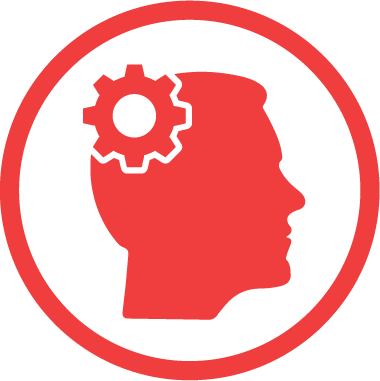
Valuing and Applying Rationality
From small, daily choices to life-defining moments, we are all constantly confronted with decisions.
Valuing and Applying Rationality is about the way we approach these decisions—our mindset, our habits, and our willingness to learn and grow. It helps us to behave in ways that are consistent with our values and wellbeing, form accurate judgments, and make choices skillfully. The Decision Education K-12 Learning Standards highlights specific dispositions that lead us to practice and apply rationality by thinking metacognitively, approaching our beliefs and assumptions with curiosity, and grounding our decision-making in reality.
Valuing and Applying Rationality is one of the four K-12 Learning Domains of Decision Education.
Intellectual Humility and Active Open-Mindedness
Active open-mindedness is searching for ways to build our knowledge and improve our thought processes. We learn to identify thinking traps, adjust our beliefs, and seek different perspectives to work toward a deeper understanding. Intellectual humility acknowledges that there is always more to learn. It helps us to admit when we are wrong, identify blindspots in our thinking and opportunities for growth, and seek support from those with more experience or expertise. Developing these dispositions fosters a growth mindset in ourselves—an acknowledgement that we can always update our beliefs and improve our rationality.
Truth-Seeking
Truth-seeking helps us to understand the world as it actually is, rather than as we hope it might be. This disposition guides us to ask questions and challenge assumptions—our own and those of others. We recognize the limitations of our perspective and information, and take action to learn more. We seek evidence, fact check, and synthesize diverse perspectives to refine our thinking and advance toward a deeper, more accurate understanding of the world around us and how it works.
Self-Awareness and Self-Regulation
Self-awareness and self-regulation help us to uncover patterns in our thoughts, feelings, and behaviors, and respond to situations thoughtfully rather than impulsively. Developing these dispositions leads us to slow down our thinking, reflect on our reasoning, and notice how our feelings are impacting our thoughts. We learn to analyze and improve our habits, and to ensure that the decisions we make align with our deepest values.